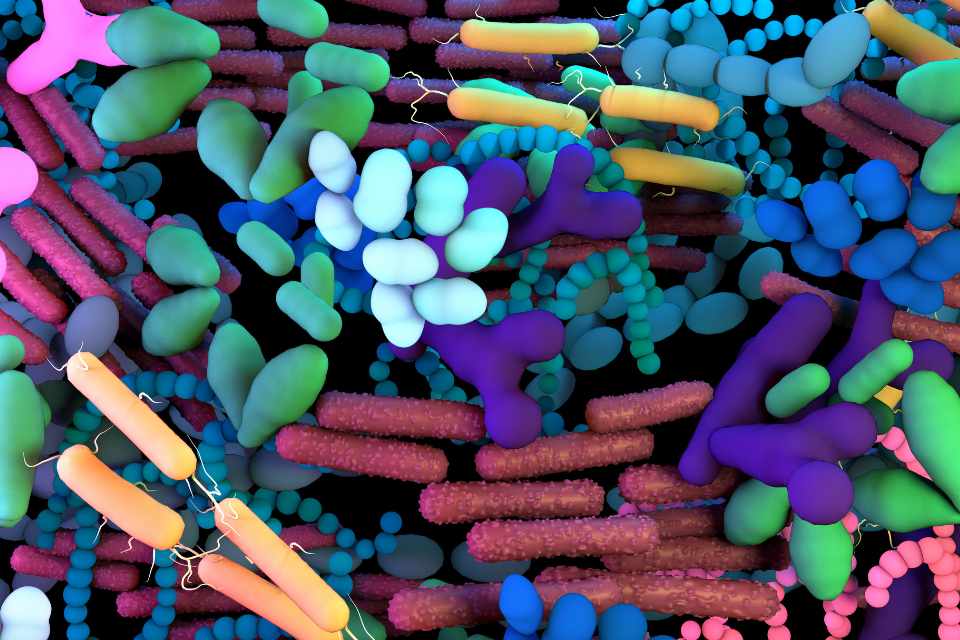A lot of people know the feeling of having a bloated tummy. That uncomfortable, unpleasantly full feeling, similar to the sensation of having eaten too much over the festive season for example. Yet, up to 25% of healthy people report having bloating frequently, and for some people bloating can be a daily occurrence. This is the first of a two part article about abdominal bloating. In this first part I discuss what causes bloating and in the second part I will cover how to get rid of bloating.
Having said that, it is important to note that this article is about the temporary type of bloating that occurs in relation to eating. There are other causes of bloating that you may need to ask your doctor about.
Bloating and distension
Though bloating might feel as if your abdomen has increased in size, an actual visible increase in abdominal girth only happens in about half of bloated people.
If your abdomen temporarily swells this is called distension. Distension can be confirmed using a tape measure. If you have abdominal distension it is also likely that you need to loosen your belt or change your clothes after eating.
Bloating on the other hand, is the subjective feeling of fullness in the abdomen, and may occur with or without distension. The distinction between bloating and distension is important since research indicates that bloating with and bloating without distension may have different causes.
Other symptoms that often accompany bloating are diarrhoea or constipation. In studies, it seems that distension is mostly related to constipation. Whereas people that have bloating without distension are more likely to have diarrhoea.
Another theory is that in a person that feels bloated, the total volume of gas in the bowel is no different to the amount of gas in a healthy bowel. The suggestion is that pockets of gas are trapped causing expansion of some parts of the bowel, creating discomfort.
Bloating and irritable bowel syndrome
Bloating, constipation and diarrhoea are all common symptoms of IBS, usually accompanied by abdominal pain. In fact, most people with IBS have bloating and in a study of IBS sufferers, bloating was listed as their most bothersome symptom.
What’s more, researchers found that in people with confirmed IBS, the severity of bloating and distension was linked only in those people with constipation related IBS.
What causes bloating?
Here I am talking about the type of abdominal bloating that occurs after a meal. The feeling of having a full belly, that contains too much gas. It can feel like mild discomfort, but most people report moderate to severe symptoms.
Causes of bloating can include:
- swallowing air while eating or trapped gas
- anorexia or bulimia
- dysfunction of the muscles of the digestive tract
- obstruction of the digestive tract
- functional dyspepsia or gastritis
- food intolerance
- coeliac disease
- irritable bowel syndrome
- abnormal or imbalanced gut bacteria, causing fermentation
- small intestinal bacterial overgrowth
- diverticulosis
- altered colonic transit
- problems with evacuation relating to the pelvic floor muscles
- fluid retention
- hypersensitivity of the intestines
- altered abdominal muscle tone
As you can see, if you suffer from bloating, your doctor may need to rule out some serious conditions. If your doctor finds nothing wrong you may simply need changes to your diet or lifestyle that can be managed by yourself, with or without practitioner guidance.
Searching for the causes of your bloating
If you know that food is a trigger for your bloating it makes sense to keep a food diary. Simply recording everything you eat and drink for a week, along with your symptoms, can help you to pin point some potential problem foods.
Certain types of sugars are often the culprits. For example, some people can not tolerate milk due to the natural milk sugar (lactose) it contains. These people may find that they can eat yoghurt without problems, yet plain milk causes symptoms. This is because when milk is fermented to make yoghurt, the lactose in milk is broken down during the fermenting process, and the resulting yoghurt poses no problem.
Yet if someone with lactose intolerance eats food containing milk, the lactose is broken down by gut bacteria rather than via the normal digestive processing. These bacteria break down the lactose producing gas in the intestines, which may cause bloating.
We know the common trigger foods, as well as dairy products, foods that often cause bloating include gluten containing grains, beans and other legumes, cruciferous vegetable such as sprouts, the onion family vegetables such as garlic and other fermentable carbohydrates. Other food related items that can cause bloating include fizzy drinks, chewing gum and artificial sweetener. As I said before, a food diary can help to identify these kinds of trigger foods.
If symptoms persist, and using a food diary or elimination diet doesn’t help to identify the problem, it is likely that some form of testing may be necessary to search for underlying causes.
The second part of this article delves into ways to get rid of bloating using diet and herbal remedies. You can find it here How to get rid of bloating.
Make sure you don’t miss future posts by signing up to receive my free newsletter.








0 Comments